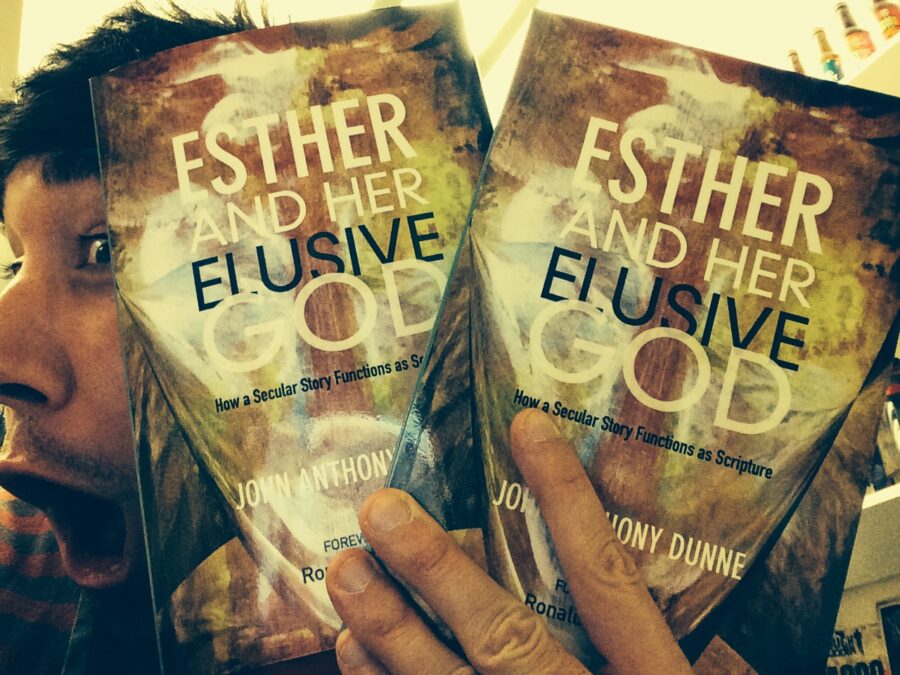I am pleased to say that my book, Esther and Her Elusive God: How A Secular Story Functions As Scripture, is finally available for purchase. The book was endorsed by N. T. Wright (St Andrews) and Chris Miller (Cedarville), and Dr. Ronald W. Pierce (Biola) wrote the Foreword. The book can be purchased from the publisher’s website, and will soon appear on Amazon. A Kindle Edition is also in the works.
I wrote Esther and Her Elusive God with a broad audience in mind, but I attempted to engage as much of the pertinent scholarly discussions as I could. The goal was to make the academic material accessible and clear to an audience that otherwise wouldn’t ever engage it. In addition to the academic side of things, part of my research included watching several cartoons and films based on Esther as well as reading a few of the more well-known romance novels inspired by the story. From these popular retellings of the story we can see how many Christians conceive of the story (and are conditioned to perpetuate the story). One of the things I attempt to demonstrate is that the cartoons, films, and novels amplify the story of Esther in a similar manner as the ancient (and expansive) translations of Esther, and hardly cohere with the original Hebrew story.
Finding God in Esther has been one of the intriguing theological challenges of the story (hence Elusive God), and, even more surprisingly, the Jewish characters appear indifferent to this fact (hence Secular Story). Determining how this difficult tale fits in the storyline of the Bible is therefore one of the chief concerns of my book.
Since submitting the manuscript in early November 2013, new books on Esther have already come out, such as Aaron Koller’s Esther in Ancient Jewish Thought (Cambridge), which came out just a few weeks before mine. I would have loved to engage this book while I was conducting my research this past summer. I’m bummed I didn’t get a chance to do so. But I guess new books and articles are inevitable (c’est la vie). Though, at some point I would love to do more work on Esther, if possible, such as a more sustained commentary.
If anyone is interested in using this book for Bible studies I would be very happy with that. However, please don’t assume that my book is for Women’s Bible Studies exclusively. Such would be a fine use of my book, but there is a rather disturbing trend in the church towards relegating Esther to women, as if men didn’t need to learn from it as well. Esther is not a book for Women; it is a book for Everyone. Look, I’m a dude and I wrote a book on Esther. I, as much as anyone else, need to hear the powerful story of Esther’s Elusive God.
If you do get a chance to read the book write me a comment below or an email (jad22@st-andrews.ac.uk) and let me know what you think.





4 Comments
Leave your reply.